
As a link builder or marketer, there are certain types of unnatural links that you should completely avoid in your link building strategy.
Toxic links, as we’ve explained previously, alert Google that you’re using spammy link building tactics to improve your ranking on search pages. These are the links you want to steer clear of.
One type of toxic link is an unnatural link. These are links that have no contextual relevancy and that offer no value to the user. Instead, they’re simply spammy attempts at improving a site’s SEO rankings.
As we will explain shortly, unnatural links are either links on your own website that send users to irrelevant sites, or they are links on other sites that direct to yours.
The main issue with unnatural links is that Google can penalize you for having them on your website or on another site that directs to yours.
Key Points
Unnatural links are a form of toxic link that can either exist on your own website or that can be found on an external website that links to yours.
Google can impose penalties on websites that use unnatural links to manipulate PageRank (PR).
An unnatural links penalty can lead to a significant decrease in organic search traffic to your website.
If you have been penalized by Google for unnatural links, there are certain steps you can take to have the penalty lifted.
What Is an Unnatural Link?
Put simply, unnatural links are bad links. Why? Because they are misleading and manipulative and can lead to a Google penalty.
These links are often also referred to as harmful or spammy links.
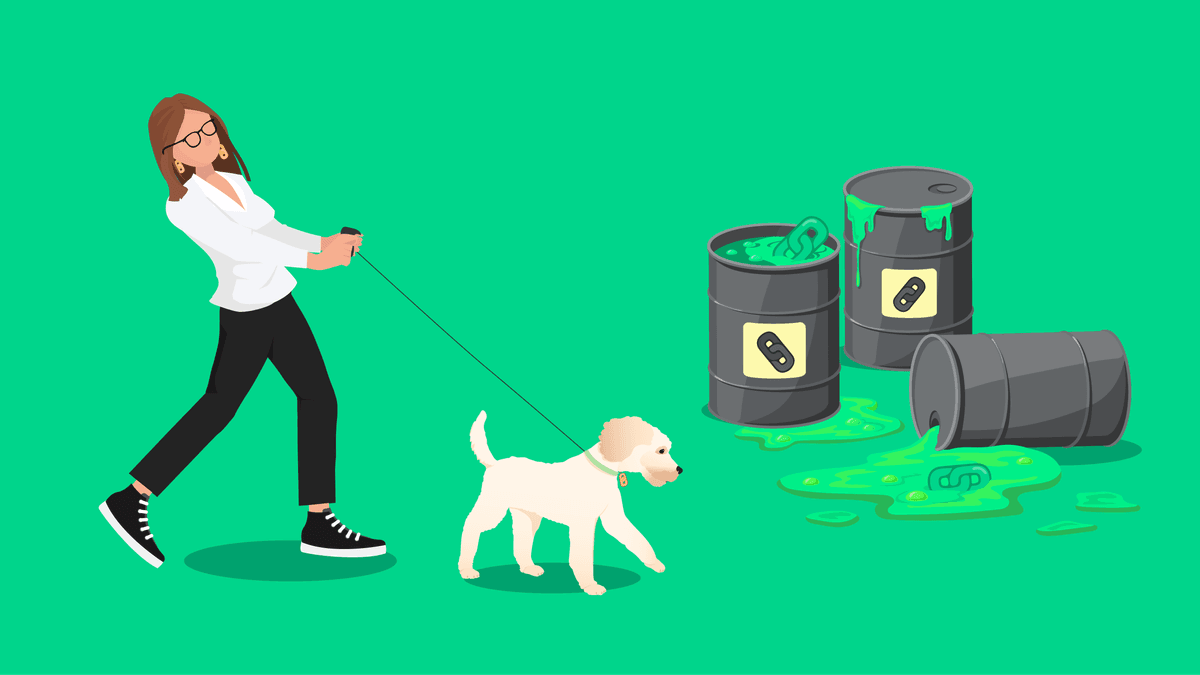
Unnatural links are typically built with the intention of manipulating your website’s ranking in search engines like Google.
Often, unnatural links are built by spammers or purchased through tactics like link schemes.
This is in contrast to natural backlinks, which are earned organically over time as people find and link to your content.
What Is a Link Scheme? 💡
A link scheme is a link building tactic that is intended to manipulate search engine results pages (SERPs). Google considers these a major violation. More on this later.
What makes a link unnatural is that there’s no particular reason for a piece of content to link to a specific site.
For example, you could have a link on your digital marketing agency website that links to a corporate bank with which you have no connection.
Why are unnatural links bad?
Unnatural links are bad because they:
Impact the integrity of Google’s SERPs, and the search engine manually penalizes websites.
Are often purchased or built by spammers and, therefore, aren’t a true reflection of the website’s SEO performance.
Deceive Google into thinking your website has a high Domain Authority (DA) when it actually doesn’t.
Give your website an unfair advantage over others that don’t engage in black hat SEO practices, such as paying for links.
What Is Black Hat SEO? 👈
Black hat SEO is using unethical tactics to get a website to rank higher in the search results. These techniques include keyword stuffing and using private link networks.
What Is a Google Penalty?
A Google penalty—also called a manual action—can happen at any time, especially when you have unnatural links on your website or directing to your website.
Unnatural links are the most common reason why Google imposes a penalties.
How do unnatural link penalties occur?
These penalties happen when Google’s Webmaster Guidelines are violated.
More specifically, one of the most common backlink activities penalized by Google is unnatural outbound links.
A violation of Google’s guidelines is usually the result of using black hat SEO tactics and having unnatural and toxic links in your website’s backlink profile.
This penalty would come from Google’s spam team in the form of a manual restrictive measure.
Here is an example of a manual action imposed by Google:
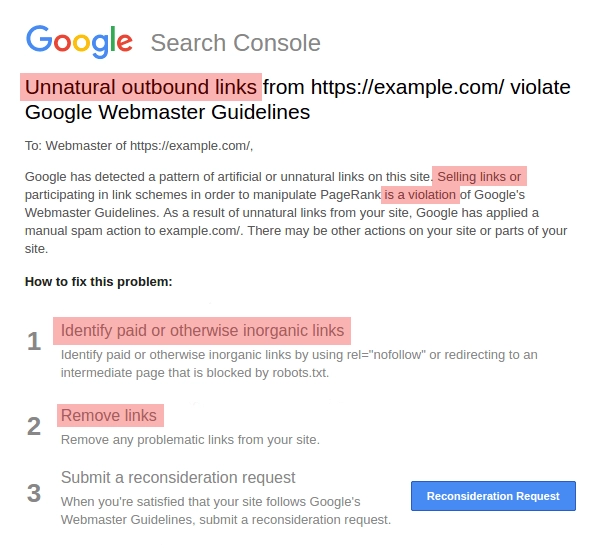
Google’s Webmaster Guidelines
According to Google, you can receive a manual action or penalty for “a pattern of unnatural, artificial, deceptive, or manipulative links pointing to pages.”
Additionally, Google’s Webmaster Guidelines state that “any links intended to manipulate PageRank or a site’s ranking in Google search results may be considered part of a link scheme and a violation of Google’s Webmaster Guidelines. This includes any behavior that manipulates links to your site or outgoing links from your site.”
What happens when you receive an unnatural links penalty?
The result of receiving a Google penalty is an almost immediate decline in organic search traffic.
The good news is that your website can recover from Google penalties, and you can return to your previous ranking positions. We’ll discuss how you can achieve this shortly.
How Do You Get Unnatural Links
Often the cause of unnatural links is simply having an inexperienced SEO specialist work on your link building strategy or having a low-quality business build your backlinks.
A classic example of this is buying backlinks from a service like Fiverr. Don't do that!
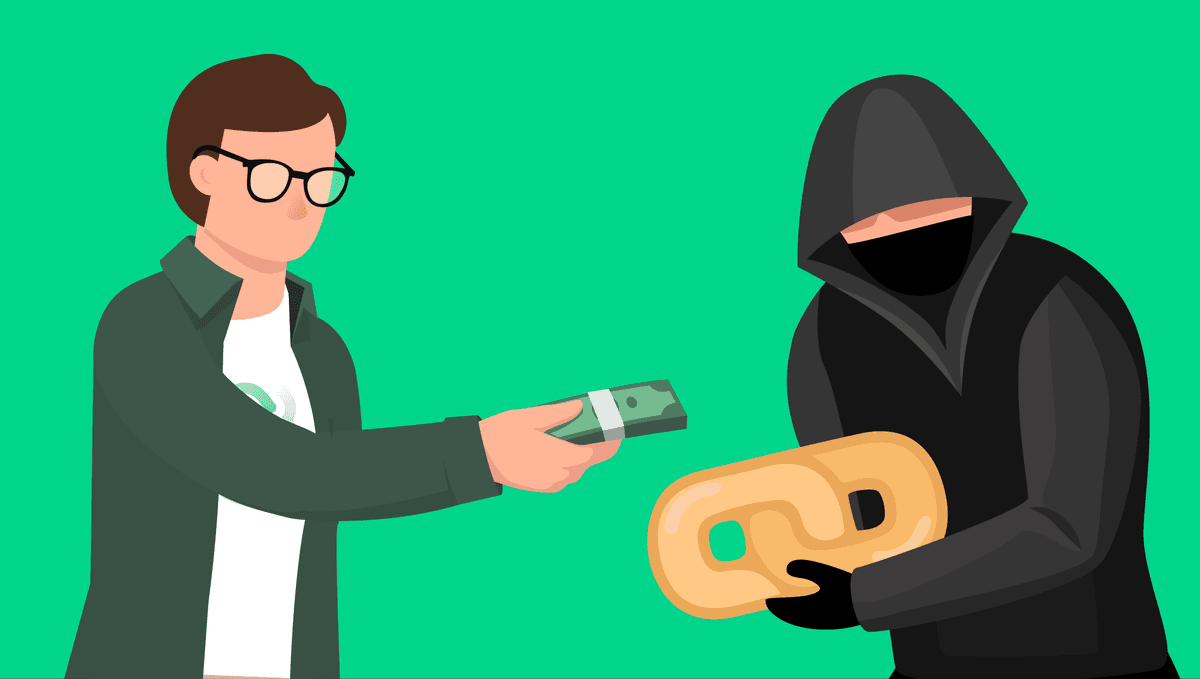
These links can be purchased or created by scrapers and spammers or they can be the result of a negative SEO attack from a competitor.
What Is a Negative SEO Attack? 💻
A negative SEO attack is when a black hat SEO link points toxic backlinks to another website. Usually carried out by spammers, the intention is for Google to see the links and then penalize the website in question. The result? A significant hit to your search engine rankings.
Examples of unnatural links
There are several types of unnatural links. This is not an exhaustive list, but these are some common examples that could result in a Google penalty.
Link schemes
Also known as link farms or private blog networks (PBNs), link schemes are a link building tactic that involves someone dedicating a website to the sole purpose of building links.
PBNs are connected sites that link to each other for SEO benefits. PBN links usually aren’t of any value to users and, as a result, can be penalized by Google.
Here is an example of an obvious PBN:
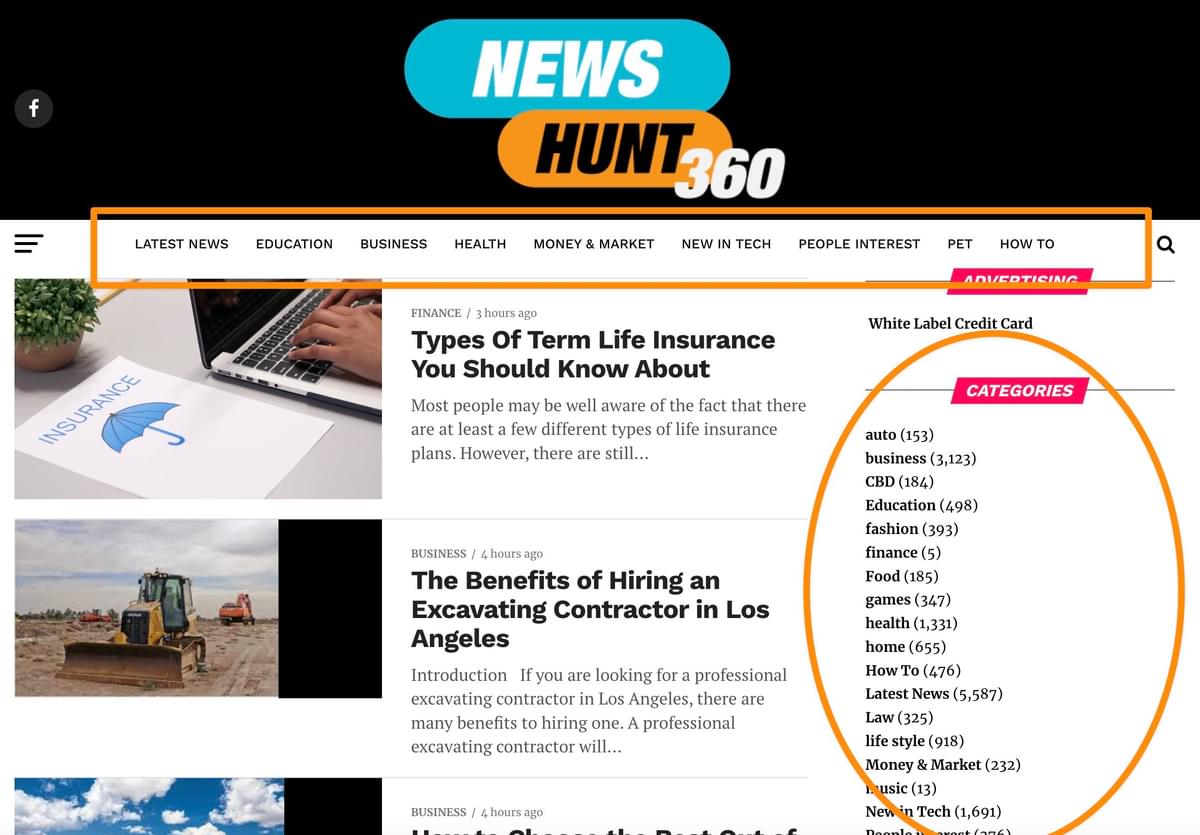
The Tell-Tale Signs
The example above has some very obvious indicators:
- An obscene number of categories - Literally every category imaginable!
- This tells us they're trying to sell links to every man and his dog
- Extremely generic content titles
- Generic stock images
- If you look behind the scenes, this site ranks for ZERO valuable keywords
The most terrifying thing is - This site is publishing multiple posts per day, which means people are actually paying for this rubbish!
This is one of the first types of unnatural links that Google has been penalizing since the start of SEO. This is because these links are not contextually relevant, and they don’t provide value. They also give websites an unfair advantage when it comes to a site’s ranking.
Low-quality web directories and bookmarking sites
Having your backlink listed on bookmarking sites and web directories can be beneficial to your link building strategy.
Although web directory link building is a fairly old-school practice, it still impacts search rankings.
However, when your backlink is listed on low-quality and spammy sites that don’t provide any value to users, you’ve got a quick way to rack up unnatural links.
Take a look at this example of a low-quality, spammy web directory:

Injected links
Possibly one of the quickest ways to incur a Google penalty is through injected links.
Injected links are when automated software and scripts are used to inject links into a website, a bit like XXS scripts, without editorial control.
Sitewide links
These are links that are usually found in the footer of a website, often placed there by a website developer or designer.
Sometimes these are OK and won't be flagged by Google if they're natural, but some companies actually pay for sitewide links on other websites, which is a big no-no.
Press release and syndicated content
Generally speaking, press releases and syndicated content are fine, provided that you use branded anchor texts within them.
However, many people still try to use keyword stuffing to bolster their rankings.
Keyword stuffing refers to using a keyword or keywords so many times in a press release or syndicated content that it becomes inorganic (or unnatural). Often, keywords are repeated so frequently that the press release is unreadable.
The best practice is to write press releases that provide value to users and not for search engine gains.
Blog comments
A couple of years ago, link building using blog comments was commonplace.
However, over the years, comment sections have been misused by spammers who over-optimize them with keywords and backlinks to manipulate PageRank.
These links don’t offer any value to users and Google almost always ignores them.
Forums
While forums are a great way to boost your brand awareness, forum backlinks are often spammy and include plenty of keyword stuffing in bios, profiles, and signatures.
Often, user profiles are created that never post anything—they only use the backlink field and then go on to stuff the bio with keywords.
This is sometimes referred to as user-generated spam.
Here are two examples of forum link spam:


Typically, these bios, profiles, and automated posts go unread, providing little value to users.
Redirected domains
You can easily trigger a manual action penalty for unnatural links by having an old domain that redirects to a new domain.
This is an extremely common form of unnatural links nowadays. People buy expired domains with solid link profiles, and re-direct them to their current domains.
Google is pretty savvy with this method now, and very rarely will you get any credit for these kinds of links.
Google’s Rules for Unnatural Links
In order to avoid running into issues with unnatural links penalties from Google, it’s a good idea to understand exactly how the search engine treats these links. These insights should help you when building links.

A single unnatural link won’t lead to a Google penalty. A manual action is usually only triggered by two to three (or more) manipulative links.
A link’s lifespan won’t stop a manual action. It doesn’t matter whether your unnatural link was built five years ago or five days ago, Google won’t view them any differently.
Authority won’t save you. Google also doesn’t favor certain sources of unnatural links because they may be more authoritative. In fact, the search engine doesn’t discriminate at all. As long as a link is manipulative and unnatural, that’s all that Google needs to penalize you.
Your whole website will be affected: Google doesn’t only penalize certain pages or sections of your website where unnatural links are hosted. Instead, it’s more likely that your entire website will be penalized. So, you won’t be losing traffic to a single page, you’ll lose traffic to your full site.
Google WILL spot money anchors. Google is exceptionally good at picking up money anchors, which are links that use exact match anchor text for keywords that a website is trying to rank for.
Google won’t help you fix a manual action. When Google imposes a manual action against your website, you’re typically left to your own devices to figure out what’s happening. They usually don’t provide the exact examples of your unnatural links unless you file a second reconsideration request.
Here is an example of a manual action. You can see that Google has not supplied examples of the unnatural links they have detected.
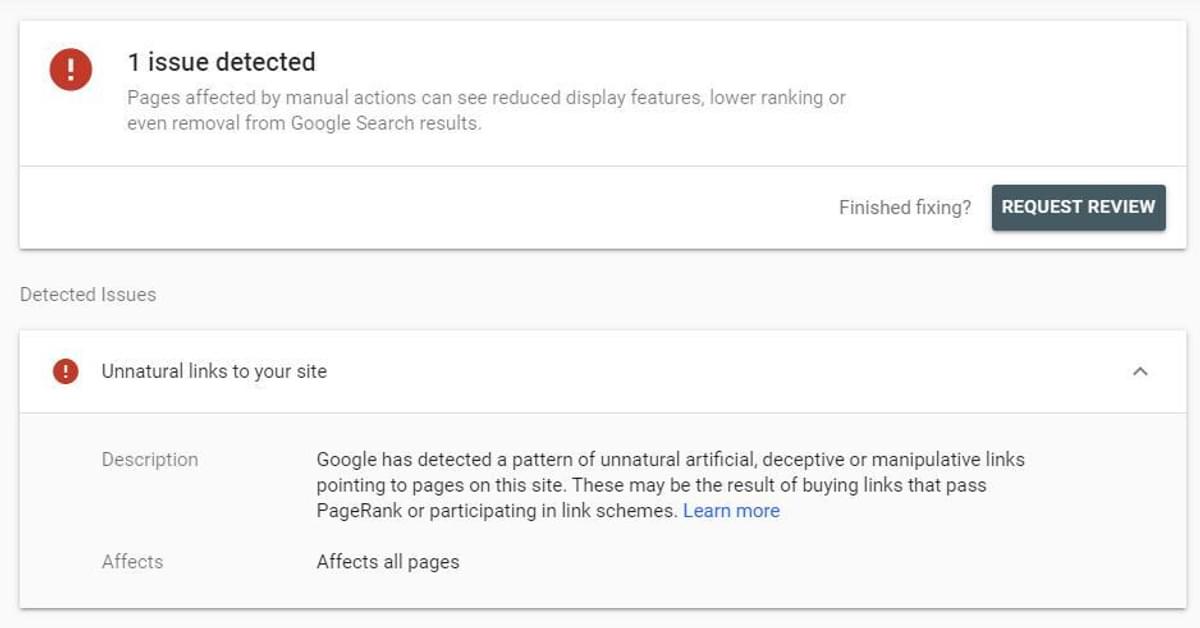
This leaves webmasters with a massive task on their hands. They have to identify and act on any and all unnatural inbound and outbound links, which is a significant undertaking.
Google isn’t likely to budge on your first reconsideration request. Instead, webmasters may have to submit two to three reconsideration requests to have a penalty lifted. This process can take up to six months or more.
What Happens to Your Website If Google Penalizes You
The first thing that will likely happen if Google imposes a manual action is that your site’s rankings will be negatively affected.
However, an indication of a penalty can sometimes be less obvious.
Here’s what to look out for:
You may no longer rank at all for something you used to rank well for.
Your web traffic reduces month by month.
You might suddenly disappear from search rankings for valuable keywords associated with your content.
Any new content seems to struggle to get into Google’s index.
What to Do If You Get an Unnatural Links Penalty
If you have received a manual action against your website for unnatural links, there are several steps you can take before approaching Google with a reconsideration request.
Backlink Audit
Firstly, you can use tools like SEMrush, Ahrefs, or Majestic to identify unnatural outbound or inbound links.
Here is an example of what SEMrush’s dashboard looks like when you run a backlink audit on the platform:
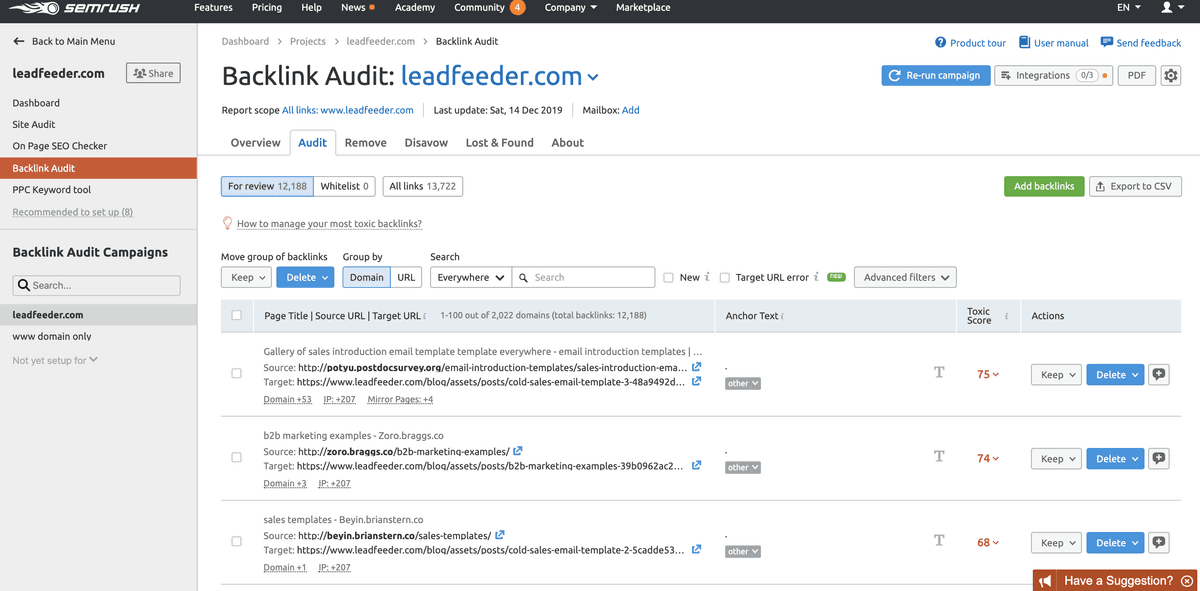
Your next step is to export a list of backlinks into an Excel or Google Sheets spreadsheet. Then you can sort your backlinks based on their toxic score. Links with a score of 60 or higher should take priority.
You can then go to each site where your data has indicated an unnatural link may exist and manually review the website. Look for any of the examples of unnatural links that we mentioned above and see if you can pick up any patterns in the URLs.
If you do detect a pattern of any sort within the URLs, it’s likely that you have link spam coming your way.
You can now split your list up into sections based on the action you want to take for each link. This could include adding the link to your disavow list, adding it to a further review list, or leaving it as is.
What Does It Mean to Disavow a Link? 🤔
The definition of disavowing in relation to SEO means to get rid of any harmful links that point to your website. You can take this action when you can’t control an unnatural link that directs to your website. You would essentially be asking Google not to consider these links when assessing your website.
Now that you have your disavow list ready, you can create a disavow file and upload it to Google Search Console. It would also be a good idea at this point to add an annotation to your Google Analytics so you can monitor any fluctuations in your traffic.
👉 See our guide on how to disavow backlinks
This is a significantly time-consuming process. However, it is essential for webmasters and link builders to go through these steps before submitting a request to Google to review your manual action.
You should request that a link be set to a nofollow status if they are a result of:
A paid link.
A press release.
User-generated spam.
Third-party widget links.
A sitewide link.
If you have tried contacting the website’s administrator and they won’t follow your nofollow request, it’s best to disavow the link.
You should attempt to remove links that are listed on web directories or bookmarking sites.
If there is absolutely no way to have these links removed, they should be added to your disavow list.
How to prevent an unnatural links penalty
If you haven’t received a manual action against your website yet, you may be wondering what you can do to prevent getting penalized altogether. Here are our top tips.
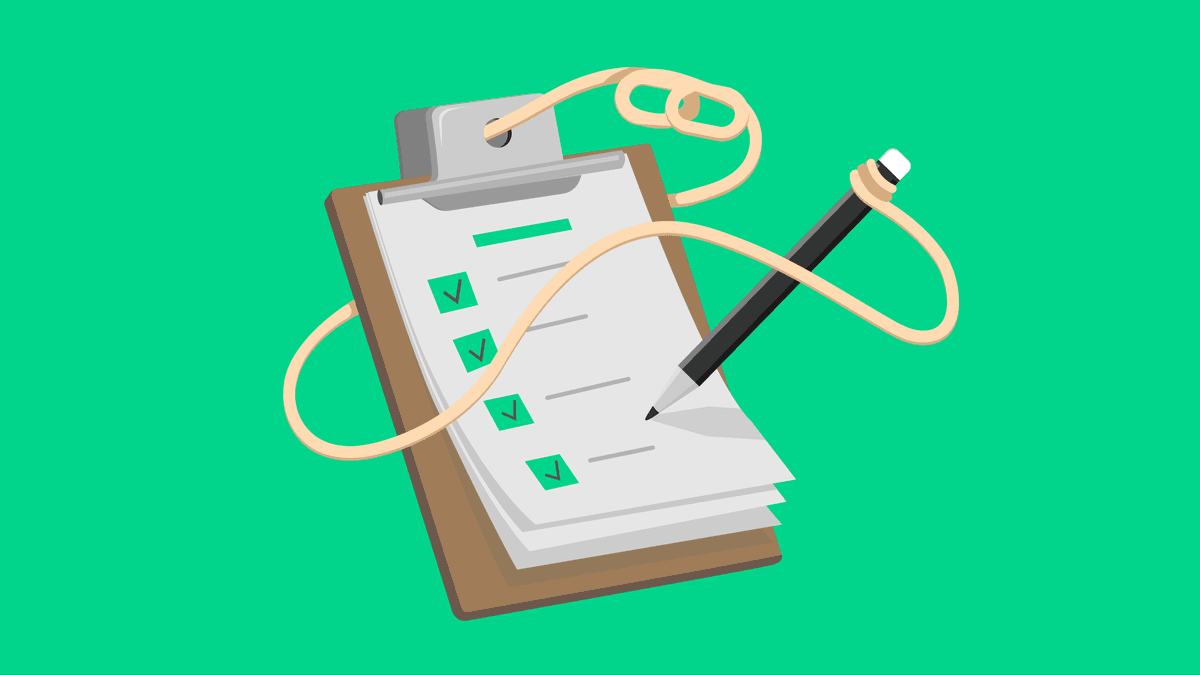
Review your backlink profile
The first thing you should do—and really, anytime you are using a link-building strategy—is to regularly review your backlink profile. You can do this by conducting an audit like the example above with the SEMrush backlink audit tool.
You should run this audit at least once every 3 months and monitor your backlink profile for any number of suspicious inbound links.
Vary your anchors
Spend time evaluating your anchor text and reviewing them where necessary. The best route to take is to vary your anchors and use similar or related keywords.
If you’re ever in doubt as to what you should do about an unnatural link in your backlink profile, it’s best to go the nofollow route.
Disavow spam
Lastly, always avoid spam of any nature. If you detect spam in your backlink profile audit, remove or disavow them as quickly as possible.
As explained above, dealing with a Google penalty is a tricky and extensive process. It can also lead to significant revenue loss if your website and marketing strategy rely on organic search traffic. As such, prevention really is key when it comes to unnatural backlinks. You can ensure you avoid unnatural links penalties by running consistent audits and keeping your profile clean.
Wrapping Up Unnatural Links
The last thing you want as a link builder is to receive a Google penalty for unnatural links. This can undo the link-building strategy you’ve worked so hard to implement. It can also mean spending valuable hours trying to have Google lift a manual action against your website.
One of the best ways to ensure you avoid unnatural links in your website’s backlink profile is to have a professional and reputable agency handle your link building for you. This way, you have a trained link-building specialist on board who understands how to build valuable and contextual links rather than turning to harmful and toxic links as an SEO technique.

